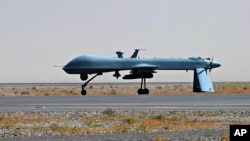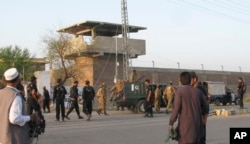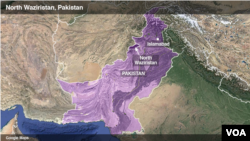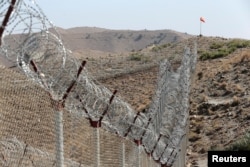The outlawed Pakistani Taliban confirmed Monday its deputy chief was among several militants killed in a recent U.S. drone strike near Pakistan’s volatile border with Afghanistan.
In announcing the death of Khan Said Sajna, the spokesman for the so-called Tehrik-e-Taliban Pakistan, TTP, said the pre-dawn drone attack occurred on February 8 in the Gorwek area of North Waziristan.
While American officials rarely comment on Pakistan-specific anti-terrorism drone operations, tribal sources and local intelligence officials at the time had confirmed Sajna and his fighters were returning home from the adjacent Afghan province of Khost when missiles fired from an unmanned aircraft hit their vehicle.
The slain commander was believed to be sheltering in Khost and had ties to the Haqqani network accused of staging high-profile terrorist attacks against local and U.S.-led forces in Afghanistan. His elimination, analysts say, is a major blow to the TPP.
Sajna was wanted by Washington for his role in terrorist attacks against U.S. citizens. Pakistani authorities also wanted him for planning major terrorist attacks in the country and orchestrating a 2012 jailbreak in the northwestern town of Bannu that freed around 400 inmates, including high-profile militants.
Sajna was also heading the Mehsud branch of the Pakistani Taliban. Mufti Wali Noor has now been appointed as his successor, said Monday's TTP announcement.
The militant group has taken responsibility for numerous suicide bombings and other terrorist acts over the past decade in which tens of thousands of Pakistanis, including security forces, have lost their lives.
North Waziristan and other federally administered tribal areas around it have long hosted militant bases blamed for attacks on both sides of the porous border between Pakistan and Afghanistan.
However, Pakistani military officials say major ground and air offensives launched in 2014 have mostly cleared the tribal belt and construction of a robust fence on the Pakistani side of the frontier is currently under way to deter illegal cross border movements.
Islamabad maintains TTP leaders and militants who escaped the army offensive have taken shelter in volatile Afghan border areas and plot terrorist attacks against Pakistan from there.
Both the countries routinely accuse each other of supporting militant attacks against their respective soils, fueling tension.















